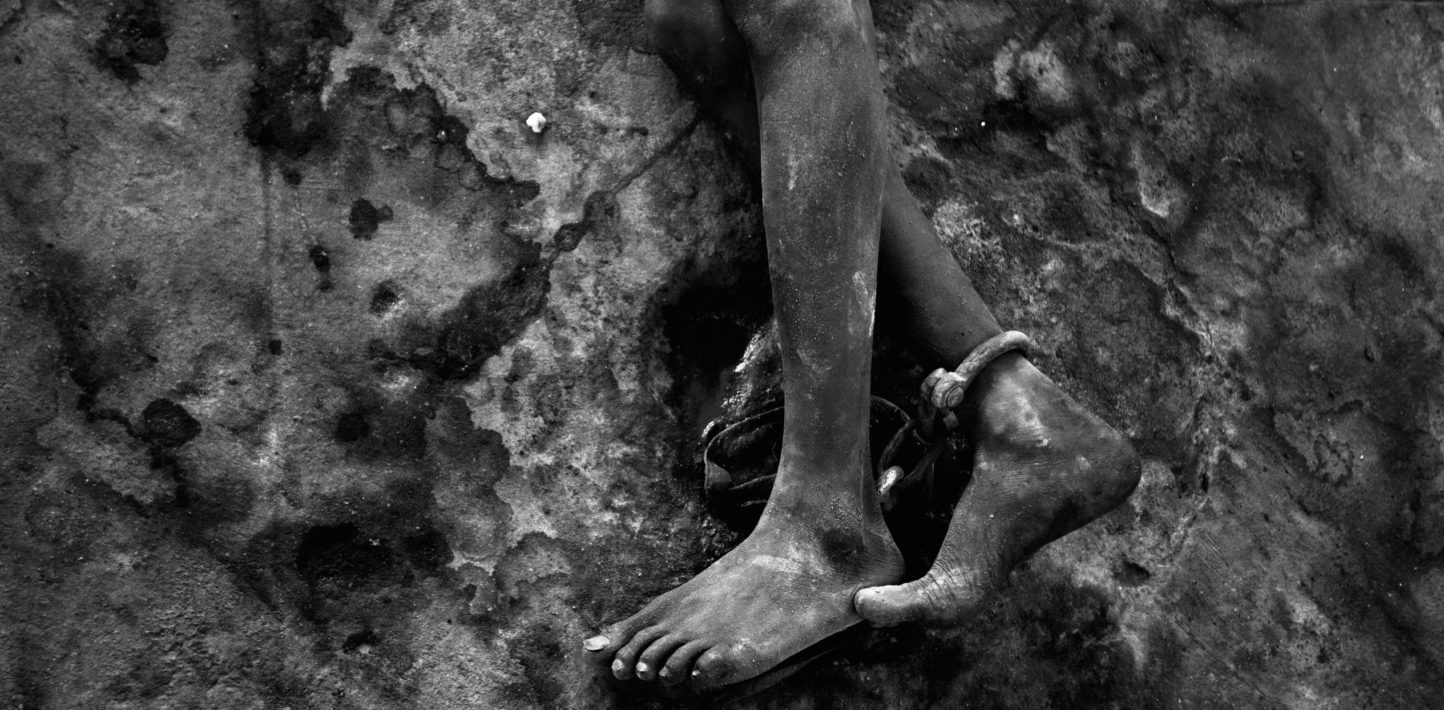Gatwich, 34, was arrested by the South Sudan Military Intelligence Directorate in the aftermath of the July 2016 clashes in Juba and detained at the Gorom Military Base, 20Km south of Juba. During his initial arrest and interrogation, he was beaten and pierced with a dull knife. In detention, the ill-treatment continued.
Speaking to Amnesty International in December 2017, just after his release, he said: “In Gorom, you cannot talk. When we were heard talking, we were brought out, beaten and tortured. They used logs, bamboo sticks and belts for the beatings. If they decided to kill you, they would put a nail in your head, and make the rest of us watch.”
You cannot talk about before. The stresses that I have are (from) not being able to support my family. It is better for one to die.
49-year old former South Sudanese detainee
But Gatwich is not alone. He is amongst hundreds of people, mostly men, who had been arbitrarily arrested and detained by the National Security Service and the Military Intelligence Directorate since the conflict started in December 2013.
Another ex-detainee 49-year-old Joseph, reflecting on his life before two years in detention, told us: “You cannot talk about before. That’s why people are dying in the sea in Italy. I cannot even send US$50 so my family can eat. The stresses that I have are (from) not being able to support my family. It is better for one to die.”
Some detainees died in custody as a result of abuses, ill-treatment and lack of medical services. Others, like Gatwich and Joseph, were lucky but struggle to get the medical and psychological care they desperately need to get back to normal life. Most former detainees have difficulties rebuilding their broken lives.
I cannot look for jobs because they took my documents when they arrested me, and my health is also not good.
32-year old former South Sudanese detainee
“Before detention, my life was okay. There was no problem. But since detention – I was there for three years and two months – life has become difficult. When they arrested me, they went to my house and took everything. I was released and found nothing. Now I can’t afford to put the kids in school and pay rent. I cannot look for jobs because they took my documents when they arrested me, and my health is also not good,” said 32-year-old Moses.
The survivors spoke of how they often wondered whether they would ever make it out of detention alive, whether they would ever see their families again. Now they are free but live each day on edge with lingering fears of being re-arrested.
Most of us are traumatized; we need trauma healing.
49-year old former South Sudanese detainee
“I used to move freely without fear but now I have no protection and I am sure they are still following us to see whether their accusations against us are true. Most of us are traumatized; we need trauma healing,” said David, another 49-year-old another detainee, released in 2017 after three years in detention.
In addition to considerable mental anguish, a number described problems with their eyesight, they complained of high blood pressure, difficulty walking, among other medical conditions they contracted, or were aggravated by the cramped, unsanitary conditions in detention.
Due to inadequate healthcare in South Sudan, where even primary health care for the general populace is provided by NGOs, former detainees are not able to get the medical or psychological attention they need, and are entitled to.
Due to inadequate healthcare in South Sudan, former detainees are not able to get the medical or psychological attention they need, and are entitled to.
Joan Nyanyuki, Amnesty International Director for East Africa, the Horn and the Great Lakes
Availability of and accessibility to mental health and psycho-social support services is extremely limited in South Sudan. Juba Teaching Hospital – the only public medical facility that provides psychiatric care – had capacity for only 12 patients as of July 2016. The country has very few practising psychiatrists.
While some NGOs provide support to released detainees, there is a general absence of tailored support for victims. Men are particularly disadvantaged. Although Amnesty International has documented that men are also subjected to sexual and gender-based violence, particularly when in custody, there are hardly any specialized health and support services for male victims.
Mental and psychological health interventions should be mainstreamed to become part of the standard healthcare package provided in South Sudan in view of the on-going crisis.
Joan Nyanyuki, Amnesty International Director for East Africa, the Horn and the Great Lakes
Prolonged arbitrary detention, torture and other ill-treatment have caused physical and psychological harm to hundreds. The South Sudan government must put an end to these violations, and ensure victims receive full reparation, including compensation for physical and psychological harm, and rehabilitation. The Government also must conduct independent, impartial investigations into reports of torture and prosecute those responsible in fair trials without recourse to the death penalty.
While the primary responsibility for the care of ex-detainees lies with the government, national and international NGOs have also a role to play by ensuring that their programmes cater to the full range of violations experienced by victims of South Sudan’s conflict, including prolonged and arbitrary detention, torture and other ill-treatment, sexual and gender-based violence. Mental and psychological health interventions should be mainstreamed to become part of the standard healthcare package provided in South Sudan in view of the on-going crisis.
All names in this article have been changed to protect the former detainees.
This Op-Ed was first published in the Sudan Tribune on 5 June 2018.


